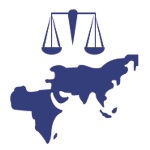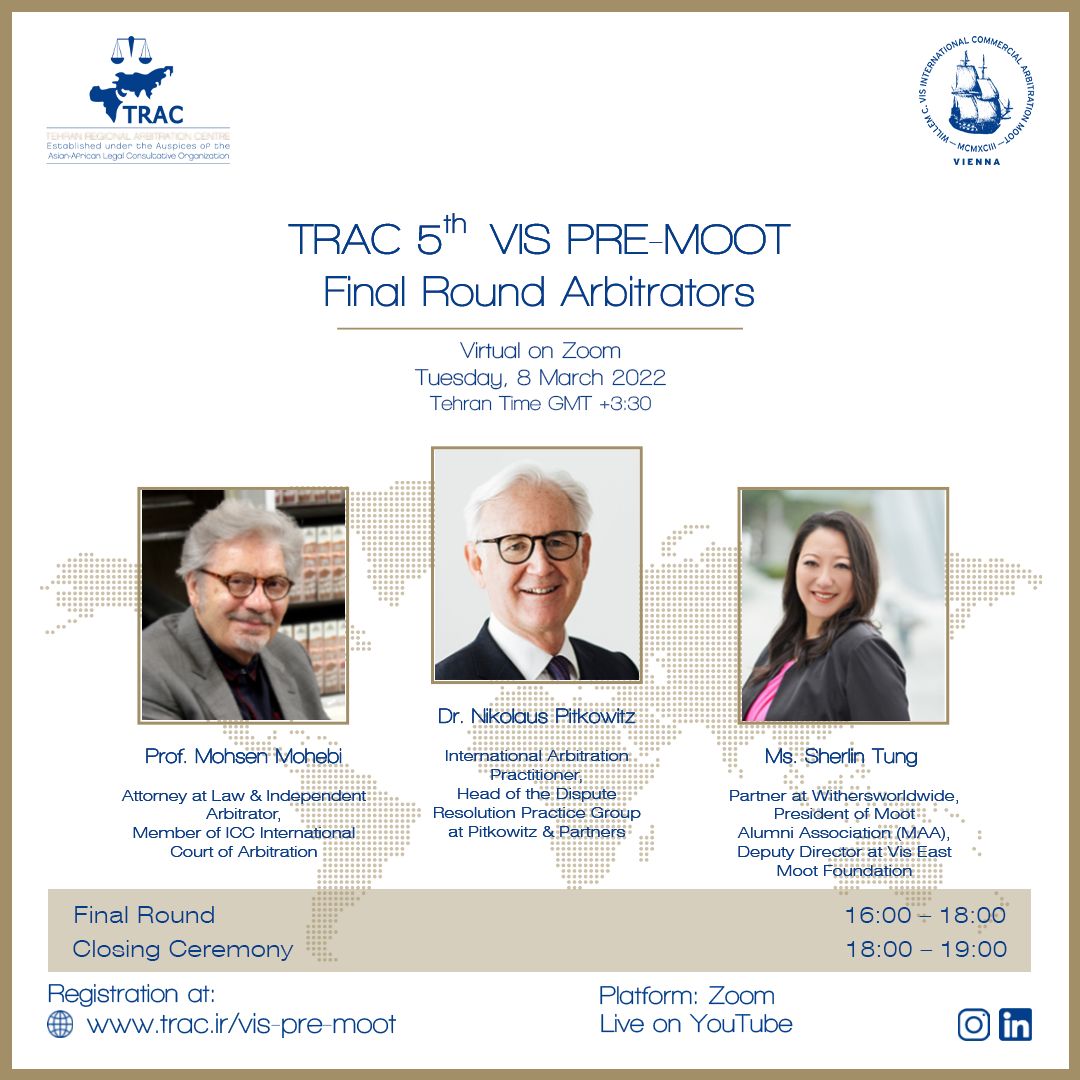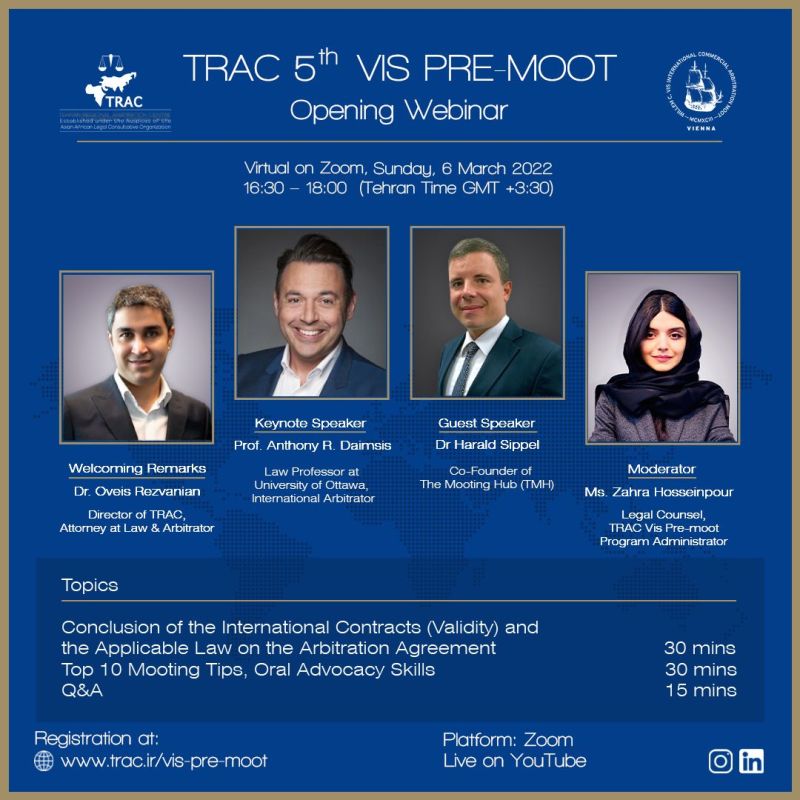GAR interactive took place online on October 08 and 09, 2020. This online event discussed the contemporary and key issues in the international arbitration such as transparency versus confidentiality in arbitration, the commoditization of investment claims, Asian opportunities and arbitration and technological innovations.
On the second day of this online event, Dr. Oveis Rezvanian, Director of Tehran Regional Arbitration Centre (TRAC), participated in a panel titled “Asian opportunities and disputes” and discussed the difficulties before Iranian users with regards to international arbitrations seated outside of Iran.
Dr. Oveis Rezvanian started with the experience that Iranian businesses have been facing in the last few years with some arbitration institutions, mostly some well-known European ones, because of the US economic sanctions. Dr. Rezvanian also provided the audience with some of his experiences in which the arbitrations institutions were very inflexible and uncooperative in solving this problem and seems that they are not willing to involve themselves in any possible trouble, regardless of the trusts that parties placed on the institutions when they were agreeing on the arbitration mechanism of such an institution.
After elaborating the above problem, Dr. Rezvanian proposed the solution needed for such frustrating and unfair situation. He stated that the parties first, should avoid inserting big name arbitration institutions in their agreements because such institutions proved to be very unreliable and irresponsible, at least toward a country which is targeted by the sanctions. He also asserted that Iranian arbitration centers are perhaps the safest solution, because they would be able to administer the case and handle the matter and, of course, the payment will be made in Iran.
Director of TRAC, to shed light on the Iranian arbitration environment, stated that Iran has had quite an acceptable arbitration regime and is an arbitration-friendly jurisdiction, plus all required infrastructure for conducting international arbitrations is provided in Iran. He also stated that Iran’s law on international commercial arbitration (also known as LICA) is inspired by UNCITRAL Model Law which means that most of controversial features of arbitration, like seperability of arbitration agreement and competence-competence are accepted, institutional arbitration is allowed under Iranian law and indeed there are two active arbitration centers in Iran the Iranian courts are well familiar with arbitration and the way they should treat with it. Dr. Rezvanian, also reminded that Iran adhered to New York Convection 1958.
In the second part of his speech and in order to illustrate the institutional arbitration in Iran, Dr. Rezvanian introduced Tehran Regional Arbitration Centre (TRAC), as a pioneer arbitration institution which provides international arbitration services that might be required. He stated that TRAC Rules of arbitration, which became effective as of March 2018, is based on UNCITRAL 2010 Rules, which is familiar for international practitioners throughout the world.
Director of TRAC, also illuminated two innovative features of arbitration Rules of TRAC namely expedited proceeding and emergency arbitration. He stated that the Iranian courts dealt with the outcomes of these features very well.
Dr. Rezvanian, in his concluding words, stated that the solution of selecting an Iranian institution for Iran-related arbitrations proved to be an efficient way. However, he also acknowledged that some non-Iranian parties might have problems with agreeing on an Iranian arbitration institution. For such circumstances, he suggested that the parties may agree on an Iranian institution, and at the same time, select the seat of arbitration in any country other than Iran. Through this way, he reminds, the parties are assured that the law governing the arbitration and the competent court for hearing the annulment complains, will be the country they wish. He eventually suggested that even the parties are unable to reach an agreement over the proposed above solution, still it is preferred to agree on an arbitration institution in a country in the region, rather than big name, but unreliable, arbitration institutions.






Leave A Comment